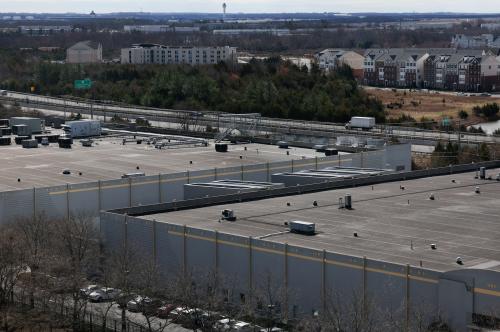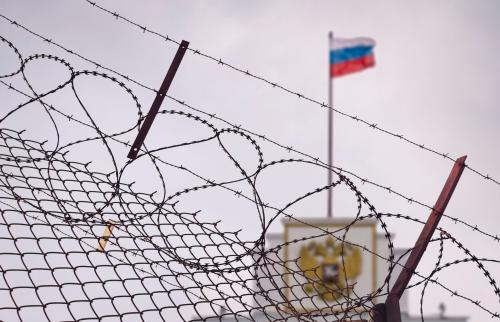

6:30 pm EDT - 9:00 pm EDT
Past Event
The Crisis in the Middle East Task Force addressed the topic of “The Rise of China: Beijing’s Role in the Middle East” in its eighth and final session. This session, hosted by the Saban Center for Middle East Policy on June 26, 2008, examined the changing nature of the relationship between the United States, China and the Middle East.
Participants examined the relationship between China and the Middle East. Though currently China’s major interest in the Middle East is energy, this was not always the case. One participant described the history of Chinese interests in the Middle East. Under Mao Zedong, China promoted revolutionary regimes in the region. When Deng Xiaoping came to power in 1978, China began to focus on economic development. China began to increase its diplomatic ties in the Middle East and its interests in the region changed as a result of its economic needs. The 1990s saw an explosion in Chinese demand for oil and China first became a net importer of oil in 1992. Another participant detailed that China now obtains about half of its oil from the Middle East and that this has led to increasing trade between China and countries in the region. In the 1980s, China sold arms to both sides in the Iran-Iraq war. China also sold missiles and missile technology in the region. It was argued that although ultimately missile and missile technology sales basically ceased, at the time China’s sale of weapons of mass destruction technology was the major point of disagreement between the United States and China. It was also argued that, despite beliefs to the contrary, Chinese arms sales to the region have been relatively minor in recent times.
One participant described the development of a relationship between China and the Middle East that was in part meant to supplement the relationships that both had with the United States. As another major power, China balances the U.S presence in the region. In particular, China offers the Middle East a relationship without “political baggage.” China does not care about the internal politics of Middle Eastern regimes as its only interest is to obtain oil. However, another participant argued that over time China would start to have more of an interest in the internal politics of Middle Eastern countries because of its reliance on the stability of the region’s economy. It was also argued that China provides another market for Middle Eastern oil in the face of talk in the United States about energy independence.
However, China’s role in the Middle East creates some tension with Washington. One participant detailed that increased ties between China and the Middle East have led to worries about decreased U.S. influence in the region and that the United States sees a potential military threat from China.
The discussion focused in particular on U.S. discomfort with China’s relationship with Iran.
One participant described China as wanting to avoid a war between the United States and Iran at all costs and playing a balancing role between the two states to ensure peace. Participants argued that the Chinese have their own reasons for being critical of an Iran with nuclear weapons—not only would this endanger China’s oil supply from the Persian Gulf but a breakdown in the Nuclear Nonproliferation Treaty would also create a nuclear arms race resulting in Japanese acquisition of nuclear weapons. However, one participant noted that China has not really demonstrated this concern about the Iranian nuclear program. In response, it was argued that China had been relying on the United States and the European Union to prevent Iran from acquiring nuclear weapons; however, this participant saw this strategy as unrealistic and expressed hope that China will realize this shortly.
Participants further considered the prospects for China’s future relationship with the Middle East. One participant argued that there might be greater political freedom in China in the future and inquired as to the impact this would have on China’s interests in the region. Another participant argued that there seems to be a generation gap between younger and older Chinese with younger Chinese being more progressive. However, this participant also said that despite this trend, even a more democratic China would be heavily influenced by its commitment to noninterference in other states’ internal matters and sympathy for countries that are humiliated by the West.
Participants also discussed the extent of U.S. leverage over Chinese policy in the region. One participant argued that the United States is able to have a significant amount of influence on China but only when the United States makes an issue its number one priority. China’s willingness to support the United States regarding issues of paramount U.S. national interest is evidenced by China’s policy toward Iraq.
It was argued that China does not currently have an interest in providing for the security of the Persian Gulf, content to let the United States fulfill this role while China focuses on its economic development. However, participants noted that this could change over time and discussed Chinese fears about energy security in the Middle East. One participant said that China sees itself as less able to weather the instability in the Middle East than the United States is. This participant argued that China would rather the United States provide security for the Middle East; however if necessary China might take a more active role. While participants noted that the United States contributes disproportionately to Middle East energy security, one participant gave a more nuanced view of China’s free-riding. U.S. provision of security prevents China from feeling like it needs to build up its military capacities. Thus, there is a U.S. interest in letting this continue at least for a while.
One participant argued that the interaction between China, the Middle East and the United States should be seen primarily as a three-way relationship, rather than as bilateral relationships between the actors. However, another participant argued that the relationship of Asia, the United States and the Middle East should be considered as many other Asian states have significant interests in the Middle East.
Participants discussed policy recommendations and what sort of role would be desired for China in the Middle East. One participant envisioned an increasingly large role for China in the region and advocated developing a way for China to contribute positively there. This participant argued that the Chinese should be incorporated into security arrangements in the Gulf and suggested bringing consumers and producers of Middle Eastern oil together through a “security framework.”
Regarding Iranian sanctions at the Security Council, it was argued that to gain Chinese support that issue would have to become the number one U.S. priority. It was also suggested that in exchange for support on Iran sanctions, the United States could provide the Chinese with the promise that, unless there is conflict in the Taiwan Strait, the United States would not prevent the free flow of oil to China. One participant asked whether letting Iran into the International Atomic Energy Agency would enable the Chinese to be harder on Iran.
Participants also spoke of limits to China’s role in the Middle East. Although participants suggested that some Chinese have expressed interest in involvement in the Middle East diplomatic Quartet, many did not think that China had much to contribute on this issue and did not advocate involving China in the Middle East peace process. One participant cautioned against exaggerating the closeness of China and the Middle East. Although China has increasing influence there, in this participant’s view there are still much stronger ties between the Middle East and the United States and this is not likely to change.

Josie Stewart, Brooke Tanner, Nicol Turner Lee
July 14, 2025

Barry G. Rabe
July 11, 2025

Robin Brooks, Ben Harris, Liam Marshall
June 5, 2025